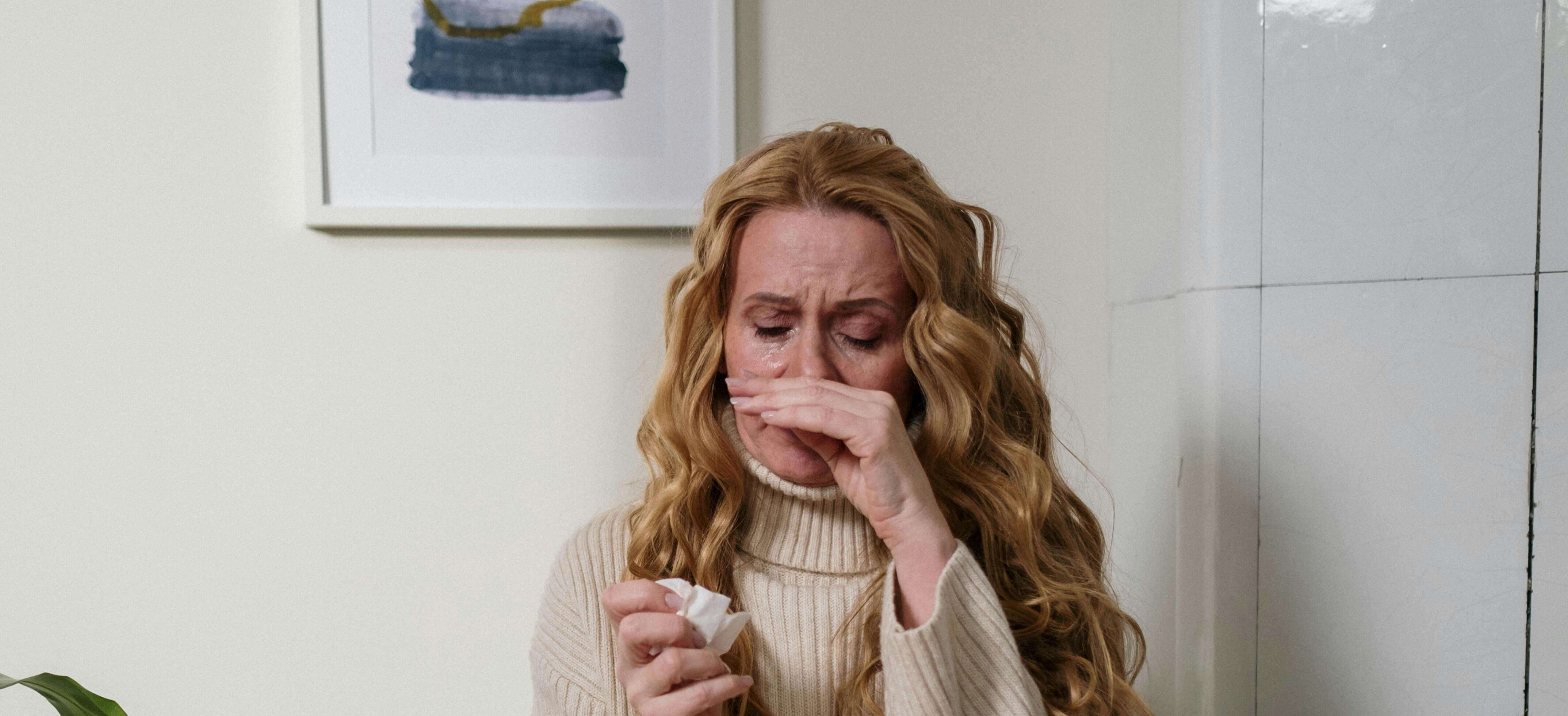8 At-home practices you can use to boost your winter health
December 10th, 2024 | 5 min. read

Winter is a time of celebrating holidays, enjoying cold-weather outdoor activities, and getting cozy on the couch with a good book.
It is also the time of year that colds and cases of flu spike, putting everyone at risk for a myriad of symptoms — sniffles, coughs, sore throat, headaches, muscle soreness, and more. This leads to missed school and work and a lot of time in bed feeling miserable.
How well you can avoid catching a cold and how well your body can kick it is the realm of your immune system. The immune system is a complex organization of cells, tissues, and organs that work harmoniously to protect you from infection.
The Paseo Club is a private club in the Santa Clarita Valley that has supported members in health and wellness for over twenty years. In this article, we will help you learn why people get sick more in the winter, what compromises immune function, and seven simple steps you can take to boost your immune system.
.jpg?width=375&height=250&name=pexels-cottonbro-6865169%20(1).jpg) Why do people get sick more in the winter?
Why do people get sick more in the winter?
Dr. Matthew Binnicker, director of the Clinical Microbiology Molecular Lab and co-director of the Clinical Virology Lab at Mayo Clinic, states that the peak season of influenza and COVID-19 is November through February.
He and his staff discovered these key factors that contribute to the spike of contagion during the winter months.
- People are indoors more, which means increased exposure to germs.
- Decreased humidity means that droplets of moisture from a cough or sneeze linger in the air longer and fall to the floor more slowly.
- Immune systems are naturally depressed during the winter. Protective functions such as cilia in the upper respiratory tract usually move infectious substances out of your nose and don't function as well.
What compromises immune function?
The immune system is a complex system, and there are several reasons why it may function poorly.
Some people have complex health issues that require immune system-repressing medications — such as in the case of people with cancer or who received an organ transplant. Others may have immune-system-compromising illnesses such as AIDS (acquired immune deficiency syndrome) or severe combined immunodeficiency (SCID), also known as “bubble boy disease.”
Most people do not suffer from these conditions and instead face more insignificant immune depression due to lifestyle choices — factors that can be changed. Here are some common behaviors that can tax the immune system:
- Stress
- Smoking
- Sleep deprivation
- Excess drinking of alcoholic beverages
- Poor diet, including an inadequate intake of vitamins, minerals, and protein and an excess of sugar and simple carbohydrates
 What are eight practices people can implement at home to boost their health?
What are eight practices people can implement at home to boost their health?
Getting a cold or flu is not completely preventable. Kids, co-workers, spouses, and others can be vectors of germs and pass their illness to you from a handshake, cough, or sneeze. However, there are steps you can take that can strengthen your immune system, making you more resilient to getting sick.
1. Hydrate
The side effects of summertime dehydration are nothing short of obvious. However, dehydration during the winter time can be difficult to detect. Our bodies begin to lose hydration at higher rates through respiration! (The steam coming off your breath is, in fact, water). Ensure to hydrate with warm water, which can easily counteract dehydration and keep your immune system active.
2. Exercise
Although high-intensity exercise when you are sick can wear you down further, exercise when you are healthy has several benefits to your immune function.
- Reduces inflammation
- Increases circulation of immune cells
- Raises body temperature, which reduces the efficacy of infection taking hold in your body
Secondary benefits include improving the quality of sleep, reducing stress, and lowering chances of serious disease — all contributing factors to good health.
 3. Stay Warm
3. Stay Warm
Your body fights infection faster and better when you are warm because your immune cells are more active. Yale researchers found that if your nose is cold, key immune system proteins are impaired, allowing the cold virus to reproduce and spread in airway cells.
Another important aspect of staying warm is preventing injury. With cold winter comes cold, brittle bodies. Muscles tighten up, and blood vessel walls contract, leading to injury-prone states.
To negate the tightening effects of the cold, keep your body warm and the blood pumping. Dress in layers in insulating and sweat-absorbing fabrics, exercise to keep the cardiovascular system and blood pumping, and bundle up after your cooldown.
4. Get good sleep
Although late nights at work, sick kids, and insomnia can all play a role in going to bed too late, screen time has become the primary obstacle. Winter is a great time (New Year's resolutions, anyone?) to place your phone or tablet in another room at a specific time and read, stretch, or catch up with your partner before bed instead.
The shorter days of winter can be an asset to setting up good sleep habits. Optimize your sleep quality with the longer nights and let the winter conditions put you back in control of your recovery.
Quality sleep helps us bolster infection-fighting responders, including the protein cytokines, which target infection and inflammation, and T-cells, which are white blood cells that help to fight infectious diseases.
 5. Manage the stress
5. Manage the stress
The winter holidays often feel like they happen in a flurry. From Halloween to Valentine's Day and peaking with Christmas or Hanukah, there are dozens of parties, cook-offs, and gift exchanges.
Kids are in and out of school, and relatives are in and out of guest bedrooms. Juggling the cooking, the shopping, and the schedules — not to mention the normal daily activities can be overwhelming, leading to stress. Stress increases your susceptibility to infection and makes it harder for your body to fight illnesses.
Pausing to take time for yourself can be difficult to do, but intentionally creating space for yourself can make a huge difference. Turn to your favorite self-care practices, such as time in nature, yoga, visiting with friends, or getting a massage to lower your stress and bring more ease to your life.
6. Moderate the drinks
Many holiday gatherings center around great food and drinks. We all know to be cautious about overdoing it on the Christmas cookies, but the spiked eggnog or cranberry cocktail can also be taxing on the immune system.
Alcohol affects the efficacy of white and red blood cell function and gut biome and permeability. To keep your immune system in great shape, choose an alcoholic beverage on occasion and drink water or herbal tea the rest of the time.
 7. Socialize meaningfully
7. Socialize meaningfully
The holidays often mean more socializing with colleagues, friends, and extended family. If you are lucky, these are fulfilling gatherings that leave you feeling connected and joyful.
However, not all soirees have that effect. Strive to achieve a balance of quiet, reflective time by yourself and social engagements with the important people in your life. A well-connected social life reduces stress, which supports healthy immune system function.
8. Eat healthily and keep your metabolism boosted
People tend to eat heavier foods in the winter due to holiday feasts. Although eating healthy fats in surplus is great for keeping the body warm, the body’s metabolism slows down in the winter; consequently making it easier to put on the pounds.
Be sure to add foods to boost the metabolism alongside your favorite festive foods.
- Fish
- Berries
- Broccoli
- Oatmeal
- Almonds
- Legumes
- Chili peppers
- Chicken and turkey
These foods not only support your metabolism, but they also provide a wide range of nutrients that help your body operate at its best — add a bunch of leafy greens to boost your nutritional intake even further!
.jpg?width=387&height=290&name=comp_IMG_5809%20(1).jpg) Taking care of your health during winter
Taking care of your health during winter
Whether it is your kids coming home from school after sitting next to their sick classmate, getting stressed over the holidays, or eating more junk food than usual, winter provides several obstacles to staying in peak health.
Keeping the eight key steps in this article in mind will help you overcome many of these challenges, minimizing how often you get sick, how long you stay sick, and how severe your symptoms are.
The Paseo Club has several resources to keep you well. Fitness and court activities, social events, a cafe with healthy options, and a steam room and sauna are just a few amenities you can enjoy at the club.
The Paseo Club is the Santa Clarita Valley destination for tennis, pickleball, swimming, Pilates, yoga, fitness, and more. Instead of going from a gym to a yoga studio to the park and rec tennis courts, come to the club where everything for you (and your kiddos) is under one roof.
The holidays are a great time to ask your loved ones for what you want. Do not be shy — request a membership to the Paseo Club. Join today and get all your fitness, health, and social needs met! We can’t wait to see you!


.jpeg?width=387&height=290&name=Compressedimage0%20(1).jpeg)